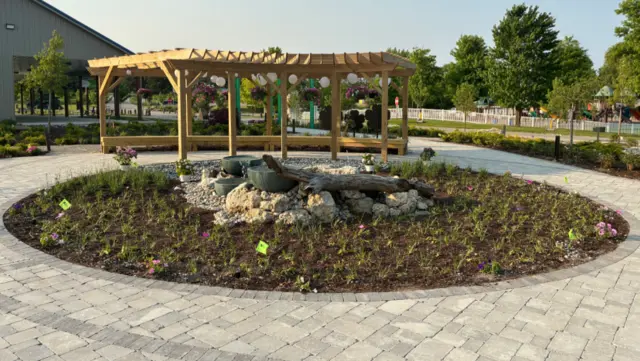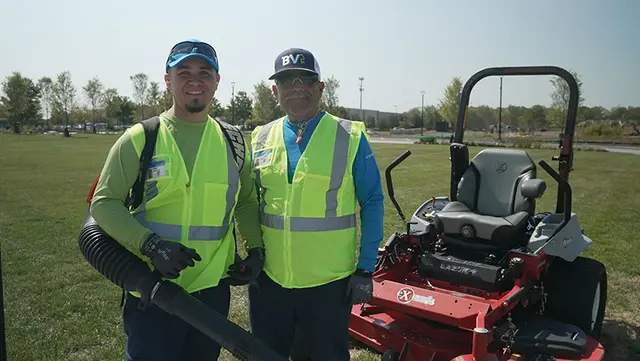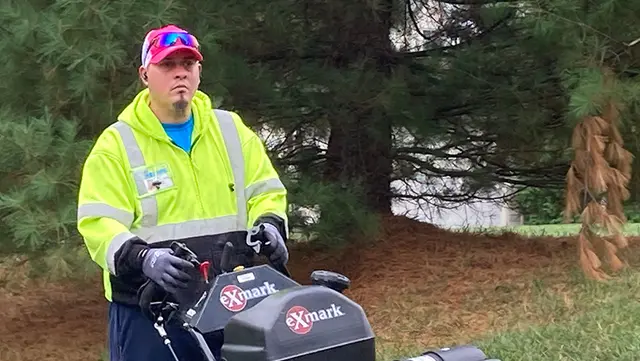The Benefits of Composting - Independence Mall, Philadelphia
What are the benefits of composting and why was this important during BrightView's work, in partnership with Laurel Valley Soils, while renovating Independence Mall in Philadelphia, Pa.?
(For the full transcript, see below.)
Great Service, Beautiful Landscapes
Benefit from a comprehensive landscape maintenance plan designed to meet your needs and exceed your expectations, all delivered by a team invested in your success.
Video Transcription
The Benefits of Composting - Independence Mall, Philadelphia
What are the benefits of using compost?
Scott Chambers, Enhancement Manager:
For the reasons you would use compost in a landscape setting would be to add organic matter to the soil profile.
Jake Chalfin, Sales Manager at Laurel Valley Soils:
The more organic matter you have in your soil, the healthier your soil is for the plants to draw the nutrients out of the soil, as a symbiotic relationship with the biology and the soil that help them digest the nutrients in the soil.
The best kind of compost to use is a local compost and you want to make sure that your local supplier is a STA-certified compost supplier and that stands for the Seal of Testing Assurance, which is a program run by the United States Compost Council.
Chambers:
The best time of year to use compost is any time of year. In the landscape profession, we use compost in the spring and in the fall because we're incorporating the composting with the germination of seed, but as long as you're adding compost to the soil, it doesn't matter what time of year to use it.
Compost is safe for your pets and children, but it is completely organic and breaks down in the soil - it's completely safe.
There are multiple application methods for adding compost. For large sites, we use top dressers, which are basically big salt spreaders pulled behind a tractor. You can put down compost in large quantities, down to wheel barrels and flinging it with a pitchfork.
Chalfin:
These urban landscapes get a lot of compaction pressure from foot traffic. Foot traffic is one of the most severe causes of compaction and in a high-traffic area like Independence Mall, it's a constant battle to maintain well-aerated soils and healthy turf.
Chambers:
When we got to Independence Hall, we did soil testing and the soil profile was lacking in organic matter, so we knew that, right off the bat, that our two biggest priorities in this area was compaction and organic matter.
Chalfin:
The Independence Mall had been maintained for a long time with fertilizer and grass seed, so we removed all the turf and took out any excess soil that was there. The remaining soil was very low in organic matter, so we tilled compost into the soil as deep as we could go to improve the soil profile and then laid sod on top of that.
Laurel Valley and BrightView have a great, long-term relationship - we've been on many projects together. When we got the call for this one, we were very excited because it is a high-profile project and BrightView is trying to give back to the community and was asking its suppliers if they would be willing to donate some of their product or services to the cause and we were, of course, happy to do that. We've donated some loads of our compost to this project. It's an important heritage site - it's the birthplace of our country and a constitution and we're proud to be a part of it and we're glad that BrightView invited us in.



